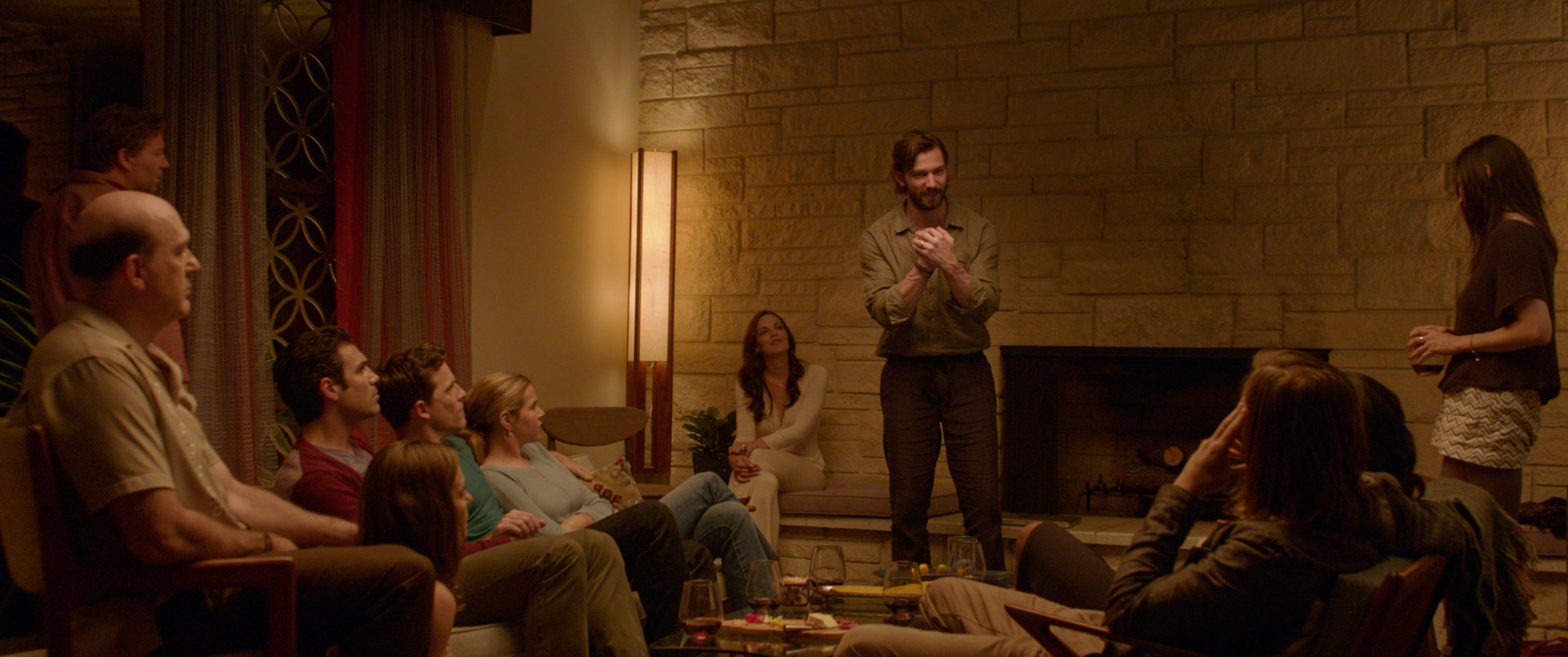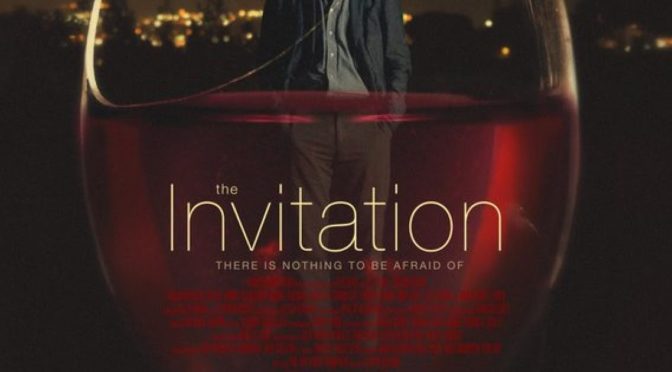Every once in a while there comes a movie that you want to talk about, but can’t. A couple years ago it was The One I Love and this year it is The Invitation. The movie is best approached with no prior knowledge. No synopsis, no trailer, and even no review. If you’re interested in a film that is more than it initially seems, check it out. If you need more convincing, the review below features some details about the setup and style of the film, but no major plot spoilers.
Will (Logan Marshall-Green; Prometheus) and his girlfriend Kira (Emayatzy Corinealdi; Middle of Nowhere) are driving to reunite with old friends at a dinner party hosted by Will’s estranged ex-wife Eden (Tammy Blanchard; Moneyball) and her new partner David (Michiel Huisman; Game of Thrones). The initial encounters are uncomfortable. All of the guests are clearly avoiding mentioning some previous event and Eden and David are trying to prove that they have moved past it. As Will moves around the house, he sees brief, warped flashbacks of memories he has clearly suppressed. In the end it’s not what happened in the past that is important, but rather what it implies for the future.
The early acting is amateurish. The actors, while laudably diverse, behave like first timers in a student film, poorly attempting to replicate casual conversation between friends. The writing doesn’t do the actors any favors. Each character is painted in broad strokes and can be irritating initially. The one positive side effect is that their clumsy dialogue distracts from the events to come.

Those events take their time to arrive. The Invitation is at its heart a slow burn thriller. Director Karyn Kusama (Jennifer’s Body) takes her time creating the setting and establishing the relationships between the characters. The home is an LA mansion that is well lit and eerily perfect in its interior design. It feels like a model home – extravagant, but by its nature sterile. Kusama makes this expansive house feel increasingly claustrophobic. The gated home is confined and the dinner party becomes a microcosm separated from the rest of the world. Every moment of conflict becomes momentous because the home is the only setting acknowledged.
The score and sound design play a key role in the suspense. The soundtrack features screeching violins and subtle white noise that immediately communicate dread. As certain characters become agitated, the sound design reflects their emotional state. Banal noises like the chewing of food or the clanking of utensils against plates become grotesque and cacophonous. Even when the dinner seems commonplace at first glance, the film’s audio always hints at more to come.
As Will’s unease evolves into suspicion, every action is called into question. Who are the two guests that the rest of the party doesn’t know? What is the real reason for bringing everyone together? Even small, innocuous gestures are implied to have ulterior motives. The tension increases and it’s unclear whether Will’s mistrust is warranted. Without revealing too much, the ending delivers an answer and has further implications for the world of the movie. The Invitation grows from a socially awkward dinner party to a paranoid thriller of potentially sinister intentions.

4/5 stars.
